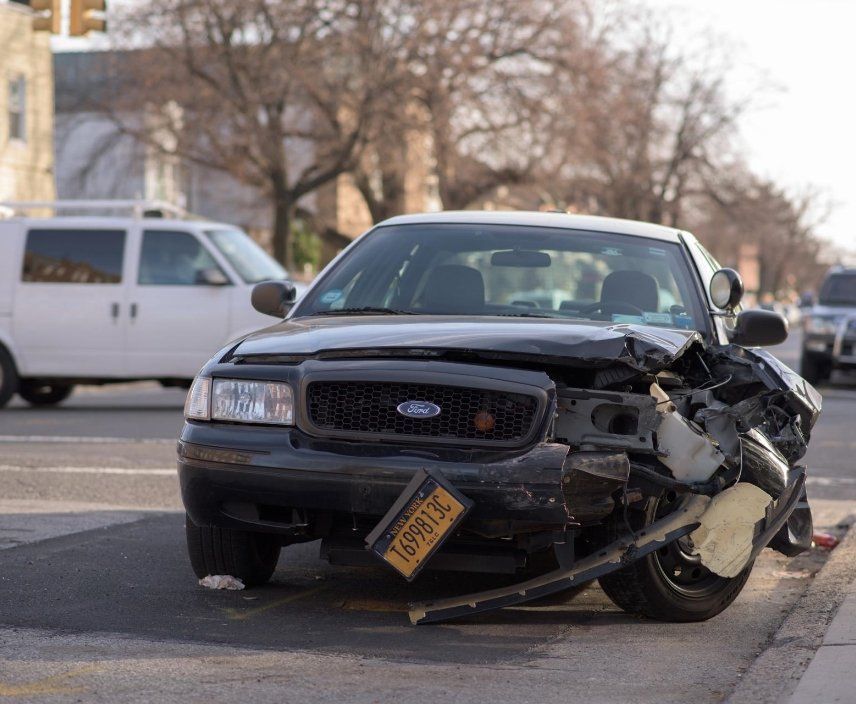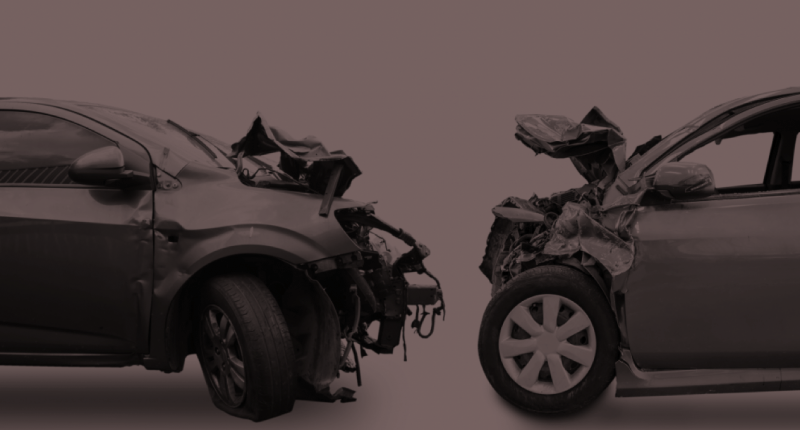VEHICULAR CRIMES DEFINITIVE GUIDE
Facts, Laws & Circumstances About Vehicular Incidents in Arizona
All You Need to Know About Vehicular Crimes in Phoenix & Scottsdale, AZ
LEGAL REPRESENTATION & COUNSEL FOR VEHICULAR INCIDENTS IN PHOENIX, SCOTTSDALE ARIZONA
Vehicular incidents involve accidents where it is alleged a person was driving impaired, driving in a reckless manner or failing to remain at the scene of an accident. In this definitive guide, we will cover the two main vehicular crimes: vehicular aggravated assault and vehicular manslaughter or homicide.
Ready to Fix This?
What Is Vehicular Aggravated Assault?
Vehicular assault is typically charged when there is a car accident, a person is severely injured, and the cause of the accident was impairment by alcohol or drugs. Less often, it is charged in cases where there is no impairment, but extremely reckless driving is alleged.
Vehicular assault is Arizona’s criminal version of a car accident. The crime is specifically called Vehicular Aggravated Assault (sometimes just Aggravated Assault).
Arizona does not have a specific law for vehicular assault. The crime requires violating a combination of several statutes. A starting point is our state’s felony assault law (called Aggravated Assault).
Arizona Laws
- Assault A.R.S. 13-1203
- Aggravated Assault A.R.S. 28-13-1204
- Definitions
A.R.S. § 13-105(39)
A.R.S. 13-1203, referenced in the statute, is Arizona’s misdemeanor assault law. Accordingly, a felony assault – first requires a misdemeanor assault – as a predicate to a felony assault.
Once it is determined a person’s actions have violated one of these three scenarios, then a vehicular assault analysis turns back to A.R.S. 13-1204.
As defined A.R.S. 13-1203, states a person commits misdemeanor assault by:
1. Intentionally, knowingly or recklessly causing any physical injury to another person; or
2. Intentionally placing another person in reasonable apprehension of imminent physical injury; or
3. Knowingly touching another person with the intent to injure, insult or provoke such person.
If any of the criteria as defined in A.R.S. 13-1203 are met, A.R.S. 13-1203 provides eleven circumstances for aggravated assault. In vehicular assault cases, the three (3) most likely to apply are:
2. Deadly weapon or dangerous instrument
3. Temporary but substantial disfigurement
What Is Vehicular Manslaughter?
This refers to the category of Arizona crimes where a person was killed during a car accident. This includes vehicular manslaughter, but also negligent homicide.
Commonly these kinds of accident involve the use of alcohol, drugs or prescriptions medications. There are also some vehicular homicide cases where impairment is not a factor. These case usually involve an allegation of extremely excessive speed violations.
Distinguishing characteristic between “murder” and “manslaughter” is that malice is not element of latter.
Harding v. State, 26 Ariz. 334, 225 P. 482 (1924)
Arizona Laws
- Manslaughter A.R.S. 13-1103
- Negligent Homicide A.R.S. 13-1102
- Definitions
A.R.S. § 13-105(9)(d)
A.R.S. 13-1103 provides 5 circumstances in which a person is considered to have committed manslaughter. Manslaughter is a class 2 felony in Arizona.
A.R.S. 13-1103 provides classifications for negligent homicide which is a class 4 felony in Arizona.
Manslaughter requires the government to prove that the person recklessly caused the death of another person. See § 13-1103. These cases are frequently DUI related homicides. Manslaughter is a class 2 felony.
- Recklessly Cause Death: A person commits manslaughter if they recklessly causes the death of another person. The phrase manifesting extreme indifference to human life doesn’t add an additional culpable mental state but only requires an extreme form of recklessness that is greater than is required for manslaughter.
- Extreme Indifference to Human Life: Whether or not such an “extreme indifference’ to human life exists is to be determined from all the facts and circumstances surrounding the vehicular homicide.”
- Distracted Driving | Driving While Sleepy | Falling Asleep
Voluntary Manslaughter
A conviction for voluntary manslaughter requires evidence of an unlawful (unjustified) killing without malice (without the intent to kill), upon a sudden quarrel or heat of passion. State v. McIntyre 106 Ariz. 439, 477 P.2d 529 (1970)
Reckless Manslaughter
Reckless manslaughter involves being aware of a substantial and unjustifiable risk that one's conduct will cause another's death and consciously disregarding that risk. State v. Walton, 133 Ariz. 282, 650 P.2d 1264 (App. 1982)
The culpable mental state of recklessness is less than the intentional conduct required for an attempted manslaughter conviction. State v. Ruiz, 340 P.3d 396 (App. 2014)
Second-Degree Murder
The difference between second-degree murder and manslaughter is the degree of “recklessness” that is attributable to a person’s conduct. On one hand, a person commits second-degree murder if “[u]nder circumstances manifesting extreme indifference to human life, the person recklessly engages in conduct that creates a grave risk of death and thereby causes the death of another person.”
Negligent Homicide
A person commits negligent homicide in Arizona if:
- With criminal negligence
- The person causes the death of another person. A.R.S. § 13-1102.
Criminal negligence is, with respect to the circumstances or result of an offense, the failure to “perceive a substantial and unjustifiable risk that the result will occur or that the circumstance exists.
The risk must be of such a nature and degree that the failure to perceive it constitutes a gross deviation from the standard of care that a reasonable person would observe in the situation.” A.R.S. § 13-105(9)(d).
"Lawrence represents very high-profile clients who greatly depend on a good outcome, and this guy will deliver.
This is a prosecutor's worst nightmare, and it should be that way if you need an attorney."
- David E.
Real Client's Husband, Phoenix, AZ
For more information about our Scottsdale DUI lawyer, call our office at (602)-494-3444 or visit our contact page.
What Real People Are Saying
That is, DUI cases actually dismissed. Verifiable not guilty verdicts. Blood alcohol evidence truly suppressed as witnessed by judges, other lawyers, and newspapers.
Real Client's Husband, Phoenix, AZ
"Lawrence represents very high-profile clients who greatly depend on a good outcome, and this guy will deliver.
This is a prosecutors' worse nightmare, and it should be that way if you need an attorney."
- David E.
REAL CLIENT, PHOENIX, AZ
It was miracle!... A lot of people don't really understand the benefit of having an attorney who used to be a prosecutor. They know all the little tricks and scare tactics the state has as opposed to just hiring an attorney who is a little fish in a big pond."
- Joe C.
Contact Our Scottsdale DUI Lawyer Today!
For more information, call our office at (602) 494-3444 or fill out the form and we will get back to you.
Contact Us
We will get back to you as soon as possible.
Please try again later.
Legal Coffee Blog | Arizona DUI



DUI Library
The best DUI defense stuff that only a few know and none want to share. A one of a kind annotated resource for lawyers, people accused, or anyone who wants to see what’s going on in our justice system with DUI cases…and how to fix it.

Contact Information
Office Hours
- Mon - Fri
- -
- Sat - Sun
- Closed
What Happens After You Reach Out
A team member will begin reviewing your case.
We will contact you to ask questions and go over your options.
We will determine, together with you, what makes sense for the next step for you and your family to take.
Ready to Fix This?
Contact Us
We will get back to you as soon as possible.
Please try again later.
OUR SERVICES
QUICK LINKS
CONTACT US



